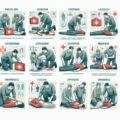The Journey of Healing
Recovery from addiction or mental health struggles can be a long, winding path. But with compassion, community, and perseverance, life does get better. Each person’s journey is unique, yet there are common threads of hope that connect our stories.
Asking for Help
Admitting we need help and reaching out takes tremendous courage. The stigma around addiction and mental illness unfortunately persists, making vulnerability hard. But asking for assistance is the first step toward health and wholeness.
Finding the Right Support
A strong support system makes all the difference. This may include treatment programs, therapy, 12-step fellowships, friends, family, support groups, or a faith community. Each person must find what works best – there is no one-size-fits-all. The key is surrounding ourselves with understanding, nurturing people.
Learning Healthy Coping Skills
Recovery requires developing new coping mechanisms to handle life’s difficulties without falling back on unhealthy patterns. This can mean learning stress management, emotional regulation, conflict resolution, communication tactics, boundary setting, and self-care. Building these skills takes time but serves us well.
Embracing the Process
Healing is an ongoing endeavor with ups and downs, not a quick fix. Some days will be discouraging and frustrating. Self-compassion is essential – we must meet ourselves where we’re at with patience and care. Progress happens slowly, through daily commitment to our wellness.
Envisioning Our Best Life
Having a compelling vision of the joyful, purposeful life we wish to build fuels our recovery journey. We must get clear on our dreams and aspirations across all life domains – relationships, career, health, passions, personal growth, etc. This gives our efforts direction and helps life get better.
FAQ
What are the first steps to take in seeking help?
The first steps are acknowledging there is a problem that needs addressing and reaching out to a trusted friend, family member, teacher, doctor, counselor, helpline, or support group to ask for assistance. Be honest about what you are going through and your desire to get support.
Why is a strong support system so important?
Recovery is extremely difficult without a supportive community around you. Humans need connections, understanding, and care from others to persevere through hard times. Support systems provide perspective, resources, accountability, and hope.
What are some examples of healthy coping skills?
Examples include meditation, journaling, exercise, spending time in nature, listening to music, talking to a friend, breathing exercises, taking a bath or shower, reading inspirational literature, engaging in a hobby, praying or attending religious services, playing with pets, doing art or crafts projects, and preparing healthy meals.
How can you practice more self-compassion?
Ways to be kinder to ourselves include speaking to ourselves as we would a dear friend, noticing negative self-talk and countering it with encouragement, reminding ourselves that all humans struggle, doing things we find comforting when we feel down, and repeating positive mantras about our intrinsic worth.
Why is having a vision for your life important?
A compelling vision energizes our recovery by giving it direction and purpose. It reminds us why we are doing this hard work and helps us look forward to the life we are building. It also supports making aligned choices that move us toward our dreams.









